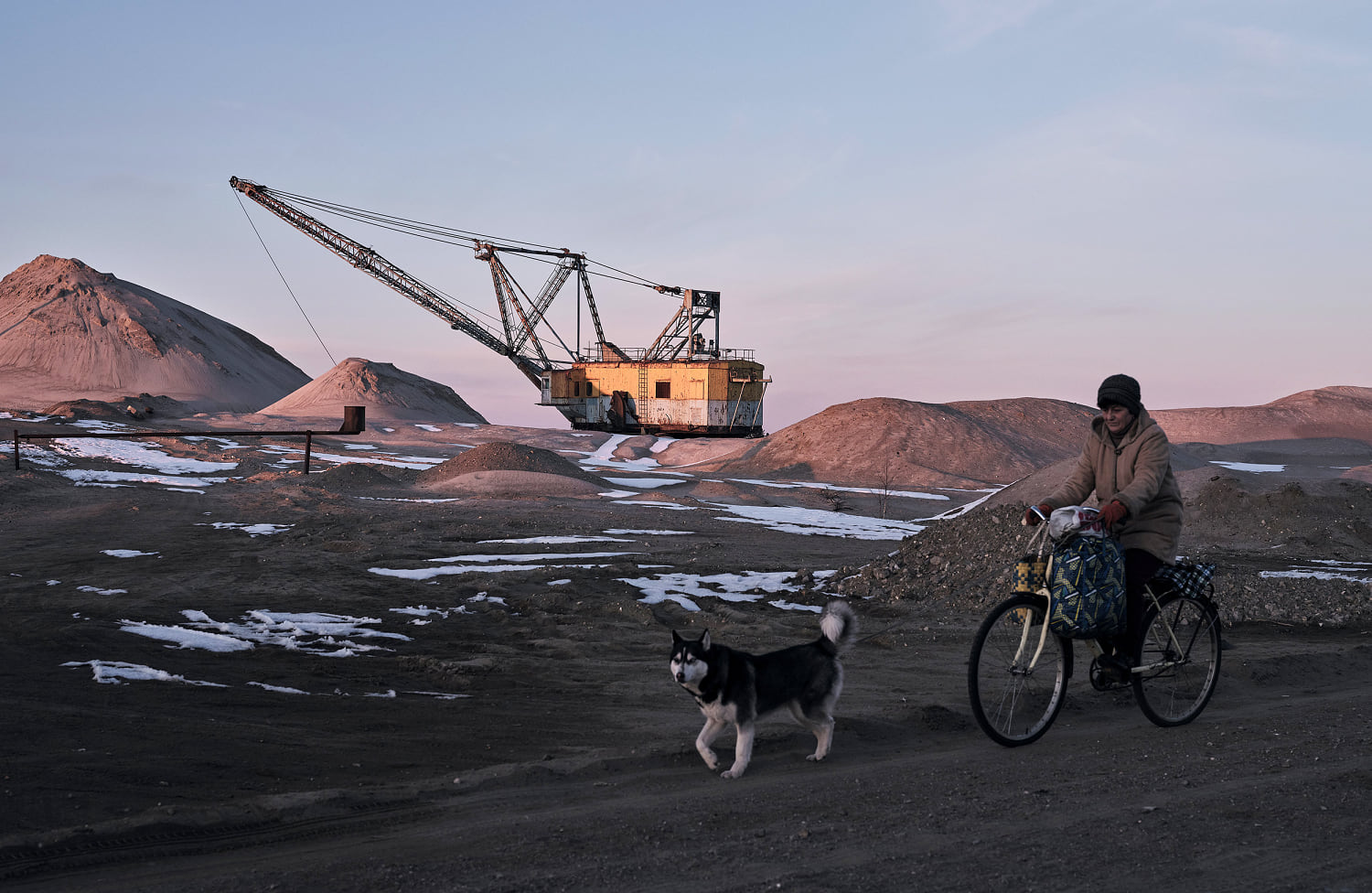Trump is stumbling into a futile foreign critical mineral strategy

After long threatening to discontinue vital financial assistance to Ukraine’s war effort, President Trump has reportedly agreed to a transactional deal with President Volodymyr Zelenksy: sign over a percentage of the country’s untapped rare earth mineral wealth to prevent Washington from cutting off support.
Reflecting one of the few priorities shared by most Democrats and Republicans, Trump recognizes the need to extricate U.S. critical supply chains from China, which controls nearly 60 percent of the world’s rare earth mining and 90 percent of processing. However, setting aside the implications of Trump’s indifference toward protecting European democracy, this deal sets a terrible strategic precedent.
Washington lacks the leverage to strong-arm — or sweet talk — most top-producing countries into handing over control of their critical mineral reserves.
Trump’s preferred method of trade negotiation is to identify where a country’s relationship with the U.S. is most vital and squeeze hard on those pressure points. This strategy may have just yielded results with Ukraine because the U.S. is essential to its continued existence. Zelensky reiterated in February that Ukraine “has a low chance to survive without [the] support of the United States.”
However, the U.S. does not play this role for the countries that actually dominate critical mineral supply chains that are key to its technology and industrial base. After China, this group is mostly non-aligned states that often hedge between Beijing and Washington. These countries include the cobalt-producing Democratic Republic of the Congo and the “Lithium Triangle” of Chile, Argentina and Bolivia.
Notably, China is out-investing the U.S. in those particular industries. Chinese enterprises own 14 of the top 19 Congolese cobalt and copper mines and have poured billions into South American lithium projects.
If managed properly, mineral resources will become the foundations for these countries’ massive economic expansion. Global demand for lithium from the battery sector alone, for instance, is projected to multiply by 14 times by 2040. What existing US trade or financial assistance, if cut off now, could outweigh that massive potential long-term upside?
While Trump’s initial blanket freeze of all foreign aid was temporarily suspended, his administration, resolved to pressure others into more submissive relationships, will doubtlessly continue probing for opportunities to cut foreign spending.
This very process, however, reveals a key weak point in Trump’s strong-arming model: the other countries’ expectations, or lack thereof, of U.S. policy continuity. The White House clearly lacks full control of U.S. aid disbursement, so it follows that Trump might not be able to maintain whatever economic pressure he threatens.
In an era where the incumbent party has lost the last three presidential elections and legislative majorities are exceptionally thin, large swings in U.S. foreign policy are also inevitable. A world leader would risk appearing weak and shortsighted to sign away mineral wealth in exchange for trade terms or aid programs that could be restored anyway under a subsequent U.S. administration.
For countries that wouldn’t quickly disintegrate without U.S. security assistance, Trump would therefore be hard-pressed to find threats that outweigh the lost economic potential from cutting the United States into their mineral wealth.
A common narrative is that China outperforms the United States in these non-Western resource markets due to its political noninterference. In a July 2024 interview, Democratic Republic of the Congo President Felix Tshisekede attributed China’s growth in Africa to its having less “arrogance” in its diplomatic approach compared to U.S. and European competitors. Theoretically, this could square well for Trump, who admires autocrats and disdains the global enforcement of democratic values.
But this narrative, often pushed by Beijing itself, distracts from the fact that China’s rare earth superiority simply reflects its stronger track record and financial commitment. China, aiming to rival the commodity-driven influence held by oil producers in the Middle East, began a global “buying spree” of rare earths and critical minerals in the 1990s.
Three decades later, Beijing and its enterprises are still willing to take bigger risks to protect these outsized market shares. In low- and middle-income countries, Chinese entities guarantee repayment for a higher percentage of government lending in the critical minerals sector than any other sector.
Of course, these risks are easier to stomach with a less profit-driven industrial base. Absent this luxury, the United States simply lacks an equivalent tolerance for high upfront investment costs and delayed return on investment.
Such patience is essential to withstand notoriously prolonged timelines between resource discovery and revenue-producing operation. This, after all, is why mineral-rich countries seek deep foreign pockets and expertise in the first place. This is also why no adjustment in diplomatic rhetoric can band-aid over the United States’ inferior track record.
We must rethink how the United States secures its critical mineral supply chains. But it would be dangerous to interpret Kyiv’s eagerness (or rather, desperation) as a sign that Washington would enter subsequent negotiations from a similar position of strength.
There are no broader stick- or carrot-based shortcuts to strengthening American control over foreign critical mineral supply chains. The only option this leaves is to greatly expand the financial support needed for American industry to become more competitive in the non-aligned global marketplace.
Unfortunately, this is a reality that Trump, if emboldened by his red-herring success in Ukraine, is likely to ignore.
Zach Glass is a geopolitical analyst focusing on U.S.-China competition and critical minerals. He is based in Washington DC.
Topics
-
Trump's Ukraine mineral deal signals major shift in U.S. foreign policy
President Trump will host Ukrainian President Volodymyr Zelenskyy at the White House on Friday to sign a new mineral deal. CBS News national security contributor Sam Vinograd joins "America ...CBS News - 1d -

How Trump and Biden Pursued Critical Minerals in Ukraine, Greenland and Other Countries
China dominates in critical minerals, and President Trump has turned to high-pressure tactics to acquire them.The New York Times - 1d -
Trump says Zelenskyy to visit U.S. to sign critical rare minerals deal on Friday
Ukraine and the United States have prepared a draft deal over access to Kyiv's deposits of rare earth minerals, officials said Wednesday.CNBC - 1d -

Ros Atkins on... the fight for Ukraine's critical minerals
The BBC's Analysis Editor Ros Atkins looks at why the US wants access to Ukraine's minerals.BBC News - Feb. 20 -

An anti-Trump strategy: Never wrestle with a pig
The anti-Trump strategy of the Democratic politicians and media has been ineffective, with Trump thriving on the attacks and the media's focus on his opponents.The Hill - 6d -
Trump’s red carpet for wealthy foreigners
‘Gold card’ visa plan intensifies the global battle to attract the super-richFinancial Times - 1d -

Ukraine to sign critical minerals deal ‘in the very short term’, US claims
National security adviser Mike Waltz tells conference that ‘economic partnership’ will be ‘good’ for KyivFinancial Times - 6d -

Ukraine says it is close to signing critical rare earth mineral deal with U.S.
Ukraine and the United States have prepared a draft agreement that would give Washington access to Kyiv’s rare-earth minerals in exchange for unspecified security guarantees, the Ukrainian ...NBC News - 2d -

Sanders: Democrats' strategy to combat Trump policies 'not good enough'
Senator Bernie Sanders believes that Democrats need to face a broken political system and address the needs of the working class.The Hill - 6d
More from The Hill
-

Trump is following Obama’s path to gridlock — and could be creating the anti-MAGA that takes him down
A mandate for change is not a blank check for one party to do whatever it wants. Trump and Musk may want to rethink their strategy with DOGE if they want real reform.The Hill - 21m -

White House: 'One of the most evil cartel bosses' being extradited to US
The White House announced Friday that 29 Mexican cartel members, including "one of the most evil cartel bosses in the world," were extradited to the United States. The Associated Press reported ...The Hill - 23m -

Vance to visit southern border next week
Vice President Vance is scheduled to travel next week to the U.S.-Mexico border, becoming the highest ranking administration to do so amid the Trump White House's efforts to crack down on ...The Hill - 23m -

Trump greets Zelensky at White House for high-stakes meeting
President Trump welcomed Ukrainian President Volodymyr Zelensky to the White House on Friday for a highly anticipated meeting amid Trump’s push to end the war in Ukraine. Trump shook hands with the ...The Hill - 31m -

Stephen A. Smith on Musk's DOGE: 'Give the man a chance'
Sports media personality Stephen A. Smith urged Americans to be patient with Elon Musk as the tech billionaire works with President Trump and the White House to reduce the size and scope of the ...The Hill - 33m
More in Politics
-

Trump is following Obama’s path to gridlock — and could be creating the anti-MAGA that takes him down
A mandate for change is not a blank check for one party to do whatever it wants. Trump and Musk may want to rethink their strategy with DOGE if they want real reform.The Hill - 21m -

White House: 'One of the most evil cartel bosses' being extradited to US
The White House announced Friday that 29 Mexican cartel members, including "one of the most evil cartel bosses in the world," were extradited to the United States. The Associated Press reported ...The Hill - 23m -

Vance to visit southern border next week
Vice President Vance is scheduled to travel next week to the U.S.-Mexico border, becoming the highest ranking administration to do so amid the Trump White House's efforts to crack down on ...The Hill - 23m -

Trump greets Zelensky at White House for high-stakes meeting
President Trump welcomed Ukrainian President Volodymyr Zelensky to the White House on Friday for a highly anticipated meeting amid Trump’s push to end the war in Ukraine. Trump shook hands with the ...The Hill - 31m -

Stephen A. Smith on Musk's DOGE: 'Give the man a chance'
Sports media personality Stephen A. Smith urged Americans to be patient with Elon Musk as the tech billionaire works with President Trump and the White House to reduce the size and scope of the ...The Hill - 33m